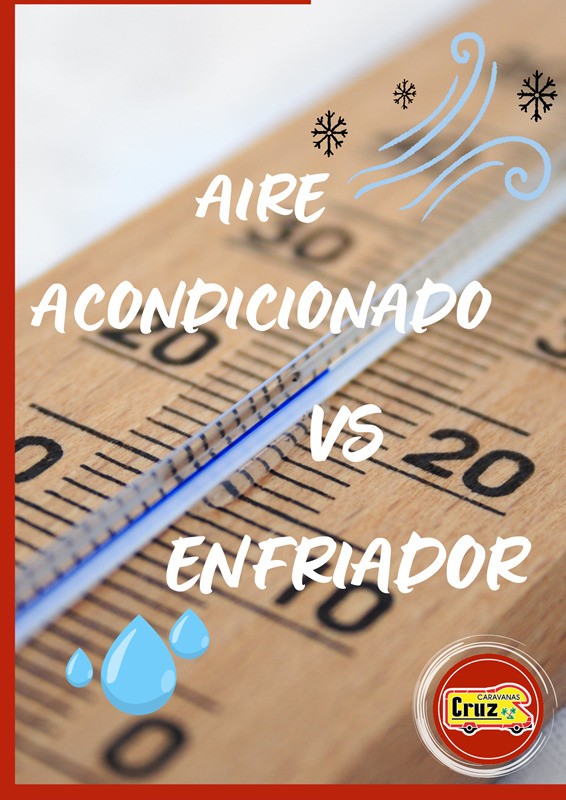AIR CONDITIONING VS. AIR COOLER
There is no doubt that we live in a hot country and that, in summer, temperatures can reach incredible values. There is also no doubt that the heat arrives earlier and earlier and that spring passes so quickly that we hardly notice it.

That's when the temperatures inside your caravan, motorhome or campervan become Mordor-like, and you realise that you need fresh air to cope with the heat.
Then you're left wondering what's best for you and your vehicle; because of course, you're on forums, reading blogs, following Instagram accounts and you've heard that there are different solutions to the problem, and everyone defends theirs as the best. So here you are again, reading this blog to see if you can clear your head.
We're going to try, but we can tell you right now, there is no right or wrong solution. We're sorry, but it all depends on how you travel, your tastes, the places you frequent and your specific needs.
What we can do, however, is to give you as much information as possible so that you can make the decision that best suits you.
We start by telling you about the two main options on the market that really provide a solution to the heat.
AIR COOLER:
This system allows us to lower the temperature inside our vehicles by between 6 and 10 degrees approximately. And it does this by using something as simple as water vapour. What the cooler basically does is to supply water from our fresh water tank to a filter that divides it into small particles, thus facilitating its evaporation. This water vapour is passed to an air flow produced by a fan that distributes the fresh air throughout the interior of the vehicle.
As simple as that, it's just a small pump that runs on 12V to supply the water, and the fan motor that circulates the water vapour through the air. As it runs on 12V, if you like to roam around outside areas or campsites it's a good option.
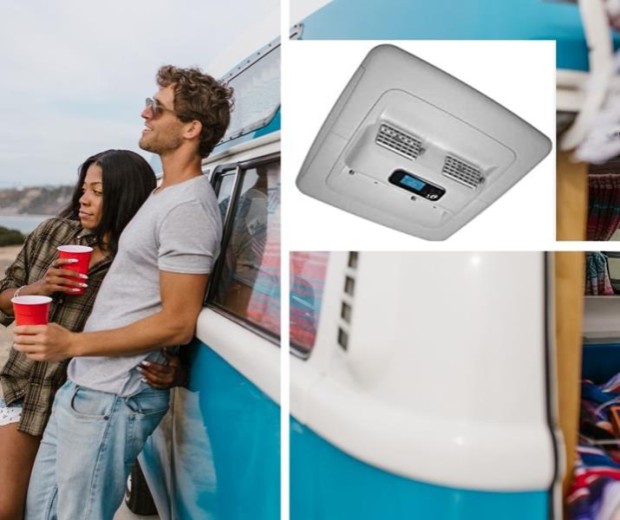
AIR CONDITIONING:
It is the air conditioning device par excellence and works based on thermodynamics. Basically it is a circuit with a refrigerant liquid that circulates through two exchangers, one reduces the temperature of the interior air and the other expels the hot air to the outside. A compressor is also involved in the process, which is what really causes a lot of energy consumption.
It is for this reason that we need to be connected to the electricity grid to avoid supply problems, so it is the perfect solution if you are users of areas and campsites.
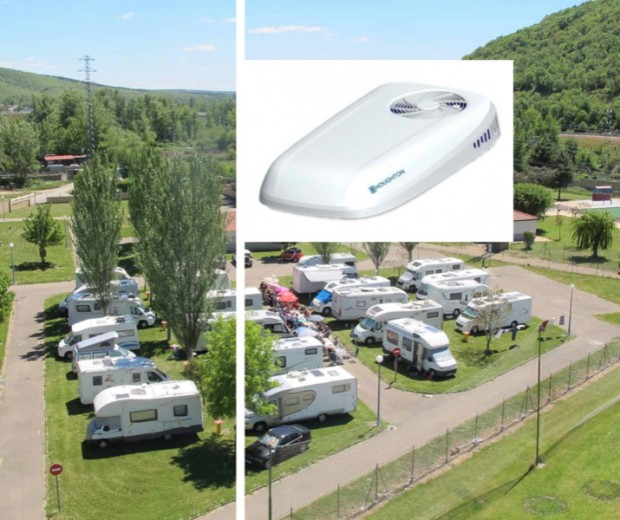
UnHaving made the introductions, let's see what are the ADVANTAGES AND DISADVANTAGES of both.
As mentioned before, the coolers run on 12V, so they are ideal for those who like to be on the go, and don't spend a lot of time in places where they need to be connected to electricity. You can keep it running while you're on the move and, once you stop, it runs on the vehicle's battery. But, although its consumption is not excessive, we can have problems optimising its performance if we have a normal battery installed. Ideally, our battery should be lithium, and if we complement it with a solar panel, we will have guaranteed our energy autonomy for much longer.
Does this mean that if I install an air conditioner I will no longer be able to ride?
Well, no, but you will need a generator, or you will need to adapt your electrical installation and equip it with batteries with a much higher capacity and a high-power current converter. In our opinion, it is best to opt for a lithium solution, which, although it has a higher cost, is the definitive solution to provide our vehicle with total autonomy, wherever we are.
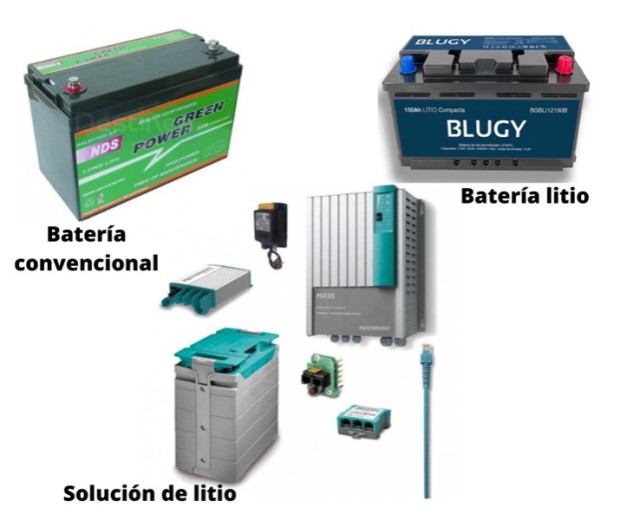
One point in favour of the coolers is that they are more environmentally friendly, as they do not need any type of gas, only water. The way they work means that the air in the passenger compartment is constantly being renewed and the humidity they produce prevents us from dust; something to bear in mind if we suffer from any respiratory pathology. However, the temperature drop in climates with a relative humidity of more than 70% is less than 5°C, so an evaporative cooler will not be useful in these areas when temperatures are very high. If you travel to coastal or beach areas, you will hardly notice any difference in temperature from the outside and, worse still, the humidity may even increase so much that you will find yourself with condensation and a feeling of suffocation all over the interior.

Like refrigerators, air conditioners also filter the air, but in this case, they subtract some humidity from the environment, which increases the feeling of comfort, since if the humidity is controlled, the thermal sensation is lower. It will provide us with a more generous flow of cold, dry air, regardless of the environmental conditions of the place where we are. The percentage of humidity outside will not matter.
The greatest advantage of air conditioning is its immediacy, once connected we will enjoy the temperature we want in a few seconds, as it allows us to select the degrees at which we want to be. In addition, another added advantage is that there are those with heat pump, so we can also acclimatise our cabin when we travel to cold places. On the other hand, they are not as environmentally friendly as the coolers, as these do need a gas and a liquid refrigerant to work.
As far as maintenance is concerned, air conditioning is usually simpler and requires less attention than chillers, as the latter require a check of the water supply and frequent cleaning of the tank to avoid health risks.
In terms of price, the difference is not very significant. Although chillers are somewhat cheaper, their installation is somewhat more complex than that of an air conditioner, which increases the total cost a little. If we add to this the fact that there are usually more offers on the prices of air conditioners, as their use is more widespread, the final difference is not a point that makes us decide for one system or another.
Anyway, this is all we can tell you to help you a little when choosing your system.
Not sure? Maybe because you don't fit into the group of those who always stay in areas with a power socket, but neither do you fit into the group of those who wander into unexplored corners.
Fortunately, there are always innovations in this sector and we can offer you a third option that is perfectly valid. Of course, as long as your vehicle is not large and exceeds 6 metres by far.
This third way is an air conditioner that works at 12V. Yes, you read that right, 12V. It is the perfect hybrid, you get all the advantages of both systems; it cools and dehumidifies without the need for an inverter and without being connected to the mains. The only drawback we have already anticipated, if your vehicle is much longer than 6 metres, unfortunately, you will have to go back to the classic air conditioner or air cooler.
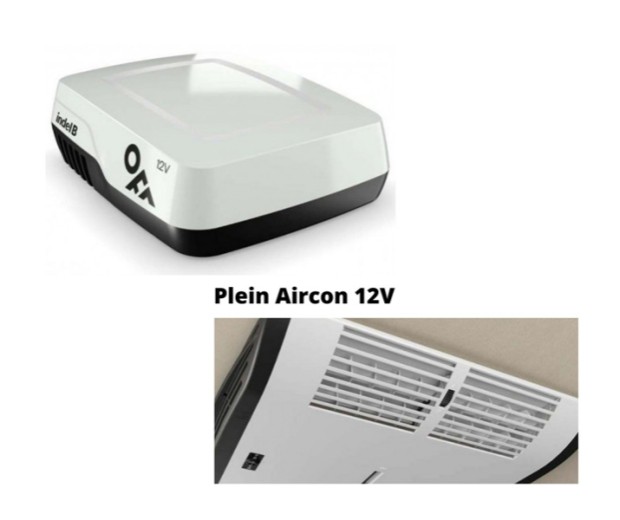
At Caravanas Cruz we offer you the three systems we have mentioned. You can visit our online shop and look for the air conditioner that suits you best, including the Plain Aircon 12V from Azimut Caravaning that provides 1,200W of power. If you have decided on the cooler you will have to send us an email to tienda@caravanascruz.es requesting information, as they are not listed in our online shop.
We hope we have been helpful and that we have clarified your doubts. If not, don't worry, make an appointment or call us and we will try to help you. Click on the "contact" section at the bottom of the home page of our website.
See you next blog post!
